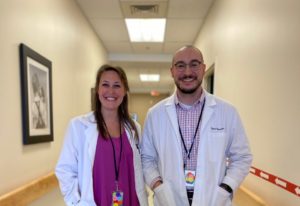Have you ever met someone who always has time, never denies an invitation and is always up for trying something fun or doing something spontaneous? I have a feeling these people are getting more and more rare. I find it so sad that most people (including myself) are stuck in their strict schedule, thinking it’s just a phase. We think it’s always going to be better/easier/quieter later, but of course that is never the case. Life never slows down, new challenges are always ahead and we always postpone our happiness. For the most part, I think us students are particularly prone to thinking that way. You’ve probably heard many of your friends say that once they graduate, life is going to be greater and easier, or maybe you’ve even said so yourself... There’s nothing wrong with being excited about the future and dreaming ahead, but what I do think is wrongful is thinking that right now is not a perfectly enjoyable moment to live as well. Don’t get me wrong, studies are hard. I mean they are mucho hard when you’ve already downed your third coffee of the day and you still have 1,000 slides to study for your exam the next day. The thing is, we have to take charge of our own happiness and find ways to enjoy the present. Here’s my take on this very important issue:
First of all, don’t wait to until you’re exhausted to take a break!
If you plan your breaks, they’re going to be way more satisfying and soothing. Procrastination is always tempting, but have you ever tried premeditated procrastination? It’s a whole other game, I swear! The real satisfaction and benefits of taking some time off comes when your rest is planned.
Say yes to spontaneity sometimes!
I know I just told you to plan your breaks, but every good advice has a bit of contradiction. With everything that is planned nowadays, up to appointments to see your friends, it is good to keep our minds sharp and our adventurousness on our toes with unexpected activities. I suggest you try to do something spontaneous at least once a week. That way you’re allowing yourself to feel the liberty and flexibility of not having to follow a precise plan.
Mindfulness and meditation
That one is already understood. I won’t elaborate much because you’ve probably heard a lot about it, but just know that if you’re dealing with anxiety, the art of living in the present can really become your best friend.
Journaling about what you’re thankful for
I have yet to try this one, but apparently taking five minutes every morning to write down three things you are thankful for will trick your mind into thinking that you are the luckiest person alive and therefore make you happier in general. It won’t keep bad days from happening, but it will make you more positive in the long run. Looks promising!
Don’t neglect personal growth
We all have some personal stuff we want to work on, but we often don’t take the appropriate time to do it. Whether you want to work on your self-confidence or improve your communication skills, try to work on these goals on a weekly basis. Even though personal growth takes time and effort, it is always an excellent investment of time. Investing in yourself should never be procrastinated.
Notice, notice, notice!
Make sure you are aware when of when you’re having a good time! Take two seconds to fully realize that you are living your best life RIGHT NOW! If you do this often, you’re going to trick your mind into thinking you’re the happiest person ever.
That’s all my advice for now. I hope you find a technique or two that works for you. I am not a professional in the wellness field, but I am a student with the absolute certainty that every step in life is neither better nor worse than the next, it is simply meant to be enjoyed as much as we can.
From an already nostalgic fourth– year student at University of Montreal,
Catherine Poitras












